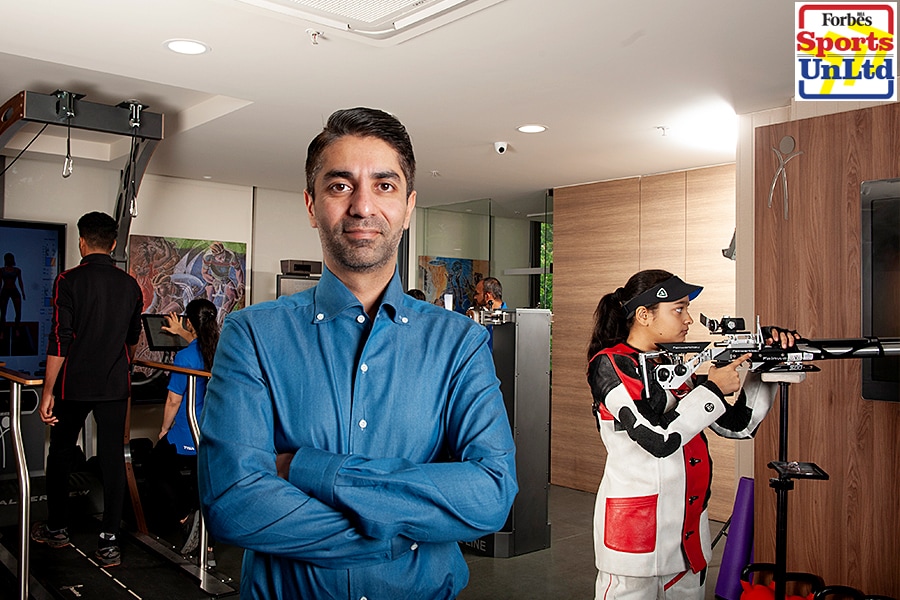
There's no denying that India will host the Olympic Games—the only question is when: Abhinav Bindra
The Olympic gold medallist on the Olympic movement, improving performances, corporate support and tying up with the IOC to drive a change at the grassroots level
 Abhinav Bindra, India's first individual Olympic gold medallist Image: Mexy Xavier
Abhinav Bindra, India's first individual Olympic gold medallist Image: Mexy Xavier
Abhinav Bindra has a unique first to his credit—the 2008 Olympic shooting champion is India’s first individual Olympic gold medallist. But that’s not all. His association with the Olympic movement goes way beyond his sport and his medal. Bindra is an appointed member of the Athletes Commission of the International Olympic Committee (IOC), has been an advocate of mental health for athletes, and through his foundation, the Abhinav Bindra Foundation, is the IOC’s first partner in India to launch the Olympic Values Education Programme (OVEP) that fosters the movement at the grassroots level. In an episode of Sports UnLtd, Bindra dives deep into the Olympics ecosystem and his thoughts on whether India should host the 2036 Games. Edited excerpts:
Q. The 141st session of the IOC recently concluded in Mumbai. What is the significance of India hosting an IOC session?
India has always been a market that the IOC has been wanting to engage with for a long time. We’ve had our challenges along the way. But this session coming to India was an extremely important step forward in trying to re-energise the Olympic movement in India. And, hopefully, it is the start to a much deeper engagement with the world's largest and youngest population. It is in the interest of India to engage with the IOC and the Olympic movement in a deeper way. The Olympic movement has a lot to offer to our young people, not just in creating a healthier society, but also inspiring our youth through the Olympic values. It is also in the IOC’s interest to engage with India. Of course, it is an important market—as I just said, it is the world’s largest and youngest population. And I do hope that this IOC session has a legacy attached to it and that, in the years to come, we can see a much more concerted effort by all stakeholders to bring the movement alive.







